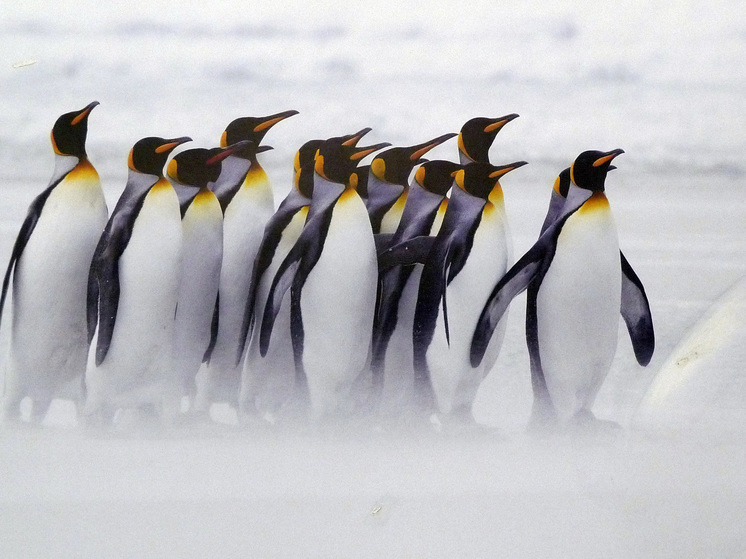Antarctic symbol could be extinct by 2100
The «catastrophic breeding failure» of emperor penguin colonies was first caused by record low levels of sea ice in Antarctica. Antarctic sea ice, where emperor penguins raise their chicks, is shrinking at a galloping rate, experts warn.

Emperor penguins survive their first «widespread breeding failure» due to record low levels of sea ice in Antarctica, confirming predictions that the species will be near extinction by 2100, scientists have warned.
According to Sky News, last year the ice sheet around Antarctica – ice floating on the surface of the sea, on which emperor penguins hatch and raise their chicks, – dropped to its lowest level on record.
Ice is usually stable from around April to late December, with chicks fledging around mid to late December.
But when the ice breaks early, presumably because of the warmer sea, the chicks are more likely to drown or freeze to death because they have not yet grown waterproof feathers or are not ready to fledge.
Emperor penguins live only in Antarctica, where it is completely dark in winter and the temperature drops to -50 degrees Celsius.
In the Bellingshausen Sea, all the sea ice melted by November last year, long before the chicks would have had waterproof feathers, which would mean they would drown or freeze to death.
According to an article published recently in Communications Earth & Environment, four of the five colonies in the region likely did not have a single chick.
Lead author of the study, Dr Peter Fretwell of the British Antarctic Survey, called it «catastrophic».
«We've never seen emperor penguins breed on such a scale in one season,» – admits the scientist.
His team tracked the colonies using satellite imagery, which showed patches of penguin feces on the bright white surface of the ice.
Dr. Fretwell called the largest penguin species a «window» to Antarctica, whose white surface cools the world by reflecting the heat of the sun, and whose currents affect weather patterns elsewhere.
«By reducing sea ice, we will change the weather in many places around the world, and we are not sure what will be the consequences",– he told Sky News.
The authors believe that many more colonies failed to reproduce last year. After the scientists presented their work, they found nine more colonies elsewhere in Antarctica whose chicks probably all died, and even more colonies where only a few would have survived.
In total, 19 of Antarctica's 62 colonies, or 30%, have lost all or many chicks in the past year due to the disappearance of sea ice, according to them.
Dr. th was even worse, and «looks like 2023 will be even worse.»
«We're waiting for the sun to rise in Antarctica in September, and we're watching with some trepidation to see what the implications of this year of sea ice will be,» – said the scientist.
His comments were made due to the fact that, according to the meteorological office, the amount of sea ice around Antarctica was at a record low for the end of June, notes Sky News.
Scientists said it is difficult to link specific extreme seasons to climate change, but they expect longer-term reductions in sea ice cover as the climate warms.
Their research adds to a growing body of work that suggests that about 90% of emperor penguin colonies will be virtually extinct by the end of the century.
While this species will still exist, numbers will fall below the critical threshold needed for survival, including partly because they need a large number of people to huddle in search of warmth.
Rod Downey, chief polar adviser for a well-known wildlife charity, states: «Emperor penguins are heading towards extinction if we don't act now.»
Antarctica has lost «a shocking million square miles of sea ice» this year, he says. compared to the average.
The expert added that in his 16 years in the region, he «had never seen anything like it before.» And now, he says, urgent action is vital to limit the rise in global average temperatures and protect Antarctic waters.

